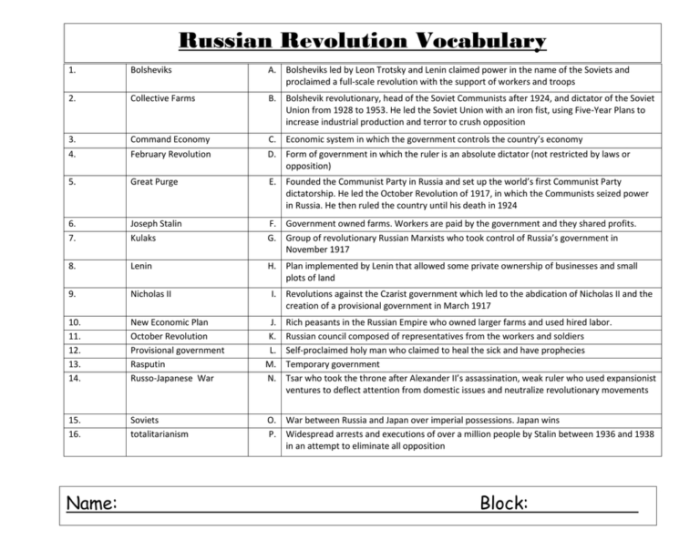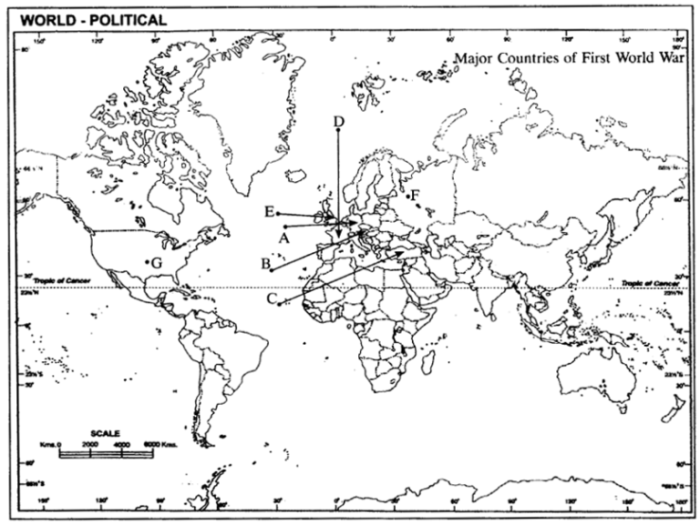The Russian Revolution, a pivotal event in world history, sparked a chain reaction that reshaped global politics and ideologies. This comprehensive guide delves into the russian revolution commonlit answers, providing an in-depth analysis of its causes, key events, impact, and lasting legacy.
From the oppressive social and economic conditions that fueled revolutionary sentiment to the dramatic events that unfolded, this guide offers a nuanced understanding of the revolution’s complexities and its profound impact on Russian society and the world at large.
Historical Context

Prior to the Russian Revolution, Russia faced significant social, economic, and political challenges. The country was ruled by an autocratic monarchy under Tsar Nicholas II, who lacked the support of the masses. Industrialization had led to the emergence of a large working class, while the peasantry remained impoverished and oppressed.
The Russian Orthodox Church held immense power, but its teachings were increasingly seen as outdated and irrelevant by the younger generation.
Causes of the Revolution: The Russian Revolution Commonlit Answers
The immediate trigger for the revolution was the Bloody Sunday massacre of 1905, in which Tsarist troops fired upon a peaceful protest in St. Petersburg. This event sparked widespread outrage and led to a series of strikes and protests across the country.
The revolution was also fueled by long-standing grievances, such as the lack of political representation, economic inequality, and the oppressive rule of the Tsar.
Key Events and Timeline

- 1905:Bloody Sunday massacre
- 1906:Establishment of the Duma, a consultative parliament
- 1914:Outbreak of World War I
- 1917:February Revolution, abdication of Tsar Nicholas II
- 1917:October Revolution, Bolshevik seizure of power
Impact on Russian Society
The Russian Revolution brought about profound social, political, and economic changes. The Bolsheviks abolished the monarchy and established a socialist state. They implemented radical policies, such as the collectivization of agriculture and the nationalization of industry. These policies had a devastating impact on the economy, leading to widespread famine and economic decline.
Global Impact

The Russian Revolution had a profound impact on global politics. It inspired socialist movements around the world and contributed to the rise of the Cold War. The Soviet Union, which emerged from the revolution, became a major superpower and engaged in a decades-long rivalry with the United States.
Historical Significance

The Russian Revolution remains a pivotal event in world history. It marked the end of the Romanov dynasty and the birth of the Soviet Union. The revolution had a profound impact on Russian society and culture, and its legacy continues to be debated today.
Detailed FAQs
What were the main causes of the Russian Revolution?
Economic inequality, political oppression, and social unrest created a combustible atmosphere that ignited the revolution.
What were some of the key events of the revolution?
The February Revolution, the October Revolution, and the Russian Civil War were pivotal moments that shaped the course of the revolution.
What was the impact of the revolution on Russian society?
The revolution led to the overthrow of the monarchy, the establishment of the Soviet Union, and profound social and economic changes.
What was the global impact of the revolution?
The Russian Revolution inspired socialist movements worldwide and played a significant role in the Cold War.